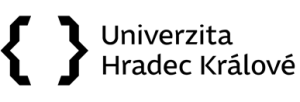
Konkrétní podoba přednášky se mění v závislosti na osobě hostujícího odborníka. Výuka probíhá v anglickém jazyce.
ZS 2024: Conflicts, Commemoration and Peace Efforts in Central Europe in the long nineteenth
Century (Dr. Tamara Scheer, Universität Wien, Rakousko)
Course aims and outline:
Central Europe, or rather the states that inherited this area, were confronted with a multitude
of violent conflicts over the course of the long nineteenth century. The result was border
changes, and the foundation of new states. The French occupation at the beginning of the
nineteenth century undoubtedly influenced political debates on concepts of modern
statehood, which were generally based on the national principle. However, in addition to
different kinds of violent conflicts that took place in this part of Europe, this course will
also look at how peace was tried to maintain, or how conflicts were resolved without prior
wars, whether through (secret) diplomacy or private peace initiatives. Due to the long
period of study, this course will also look at the ways in which conflicts have (or have not)
changed. The course will also analyze how conflicts are remembered and will show that
they are often negotiated differently in the same country by parts of society and politics.
Examples will also be used to shed light on how European conflicts spread globally,
whether as colonial campaigns or through individuals.
The aim of this course is to understand argumentation patterns of historical actors from the
macro to the micro level in different countries, to develop research questions and to practise
arguing on academic literature in discussions within the framework of a university class.
Specifically on the keywords friend/enemy, revolt/independence movement,
hero/perpetrators/victims.
The structure of the course requires each student to read an obligatory text (article, book
chapter, or chapter of a monograph) for each session and to submit an analytical summary
of that text (2 pages) for that class when the text is going to be discussed. Each student must
prepare once a short commentary (10 minutes), which will then be discussed within the
class. This class has an attendance requirement (two absences are allowed).
- Enseignant: Jiří Hutečka
- Enseignant: Tamara Scheer
